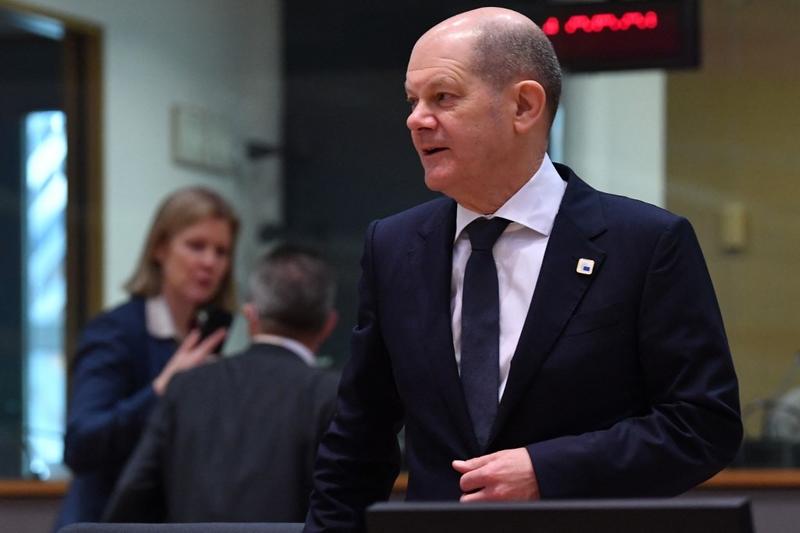 German chancellor Olaf Scholz arrives for a meeting as part of a European Union summit at EU Headquarters in Brussels on March 25, 2022. (JOHN THYS / AFP)
German chancellor Olaf Scholz arrives for a meeting as part of a European Union summit at EU Headquarters in Brussels on March 25, 2022. (JOHN THYS / AFP)
BERLIN - Germans head to the polls in the small western state of Saarland on Sunday in the first of four regional votes this year which could enable Social Democrat Chancellor Olaf Scholz to consolidate his grip on power.
The first regional vote since the federal election last September which the Social Democrats (SPD) unexpectedly won - beating the conservatives for the first time in 16 years - looks set to provide the party another boost.
A poll published on Thursday by ZDF Politbarometer put the SPD at 41 percent of the vote compared with 28 percent for the conservative Christian Democrats
A poll published on Thursday by ZDF Politbarometer put the SPD at 41 percent of the vote compared with 28 percent for the conservative Christian Democrats (CDU). The two parties have ruled Saarland in a conservative-led so-called "grand coalition" since 2012.
State elections in Germany are important bellwethers for the public mood and to determine the distribution of votes in the Bundesrat upper house of parliament.
ALSO READ: Putin, Macron, Scholz discuss Ukraine crisis over phone
While the ruling coalition of SPD, environmentalist Greens and liberal Free Democrats (FDP) has a solid majority in the Bundestag lower house, conservative-led or co-ruled states have 51 of 69 votes in the Bundesrat.
Three of the four states going to the polls this year are CDU-led. If the CDU were to lose those votes, that could make it easier for the government to pass legislation.
In the case of Saarland however, political analysts point out it does not have much weight in the Bundesrat given it has only around a million inhabitants.
Moreover voters there are especially motivated by local issues like concerns about high unemployment and the popularity of regional SPD leader Anke Rehlinger.
READ MORE: German chancellor lands in Israel amid Ukraine crisis
The conservatives are actually leading in polls nationwide, at 27 percent versus 23 percent for the SPD, said Manfred Guellner, head of pollster Forsa.
A more critical signpost will be the elections on May 15 in Germany's most populous state North Rhine-Westphalia, said Naz Masraff at Eurasia Group.
"A possible change of government from the CDU to the SPD would be critical for Scholz to further consolidate power in his party, and allow larger policy space for the government," said Masraff.
Currently the CDU premiers of North Rhine-Westphalia and Schleswig-Holstein, which is set to hold a state election on May 8, are leading their SPD rivals in polls. Lower Saxony, where the SPD is leading a grand coalition, also goes to the ballot on Oct 9.


